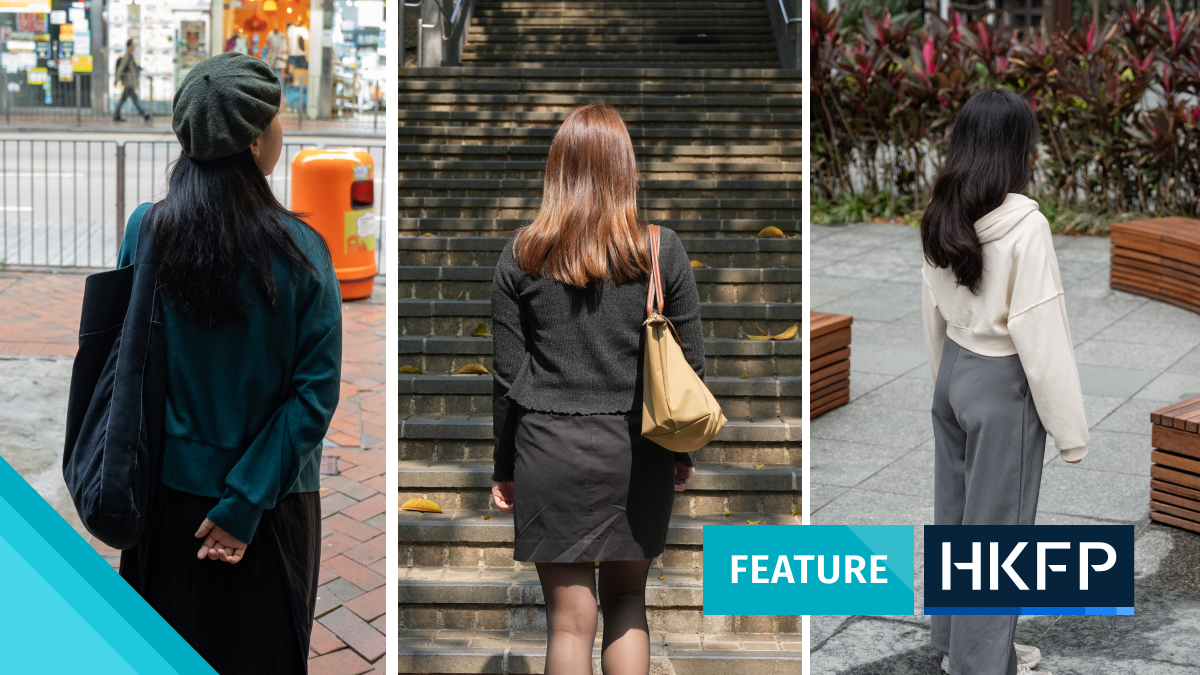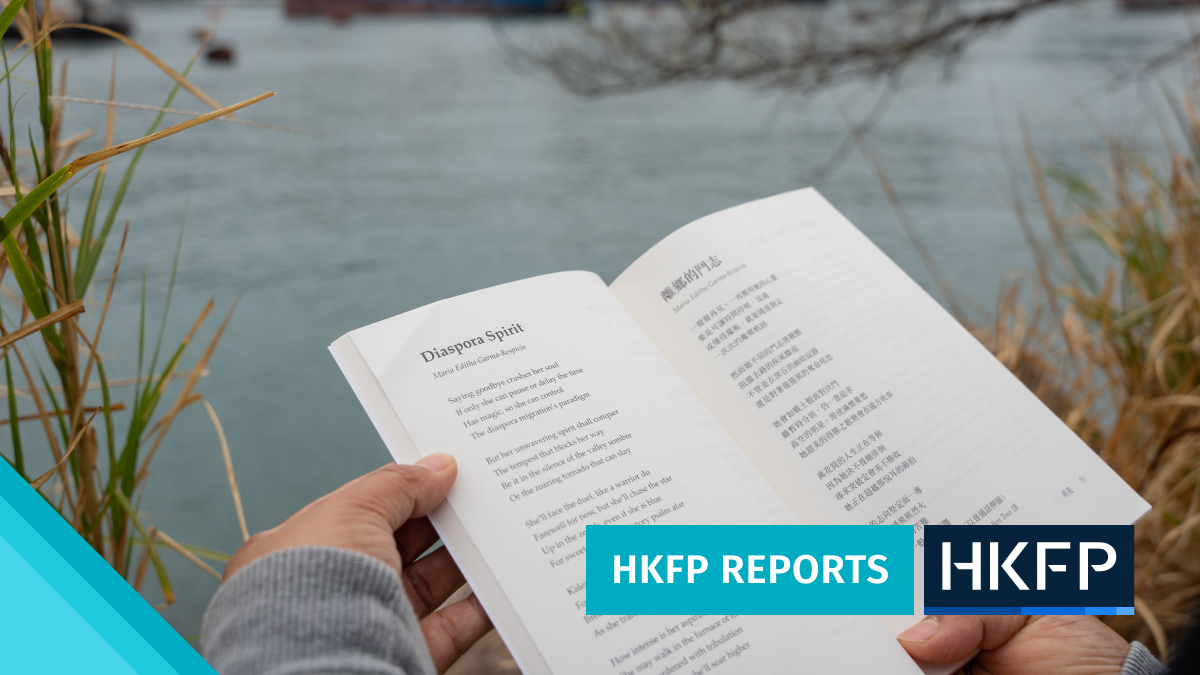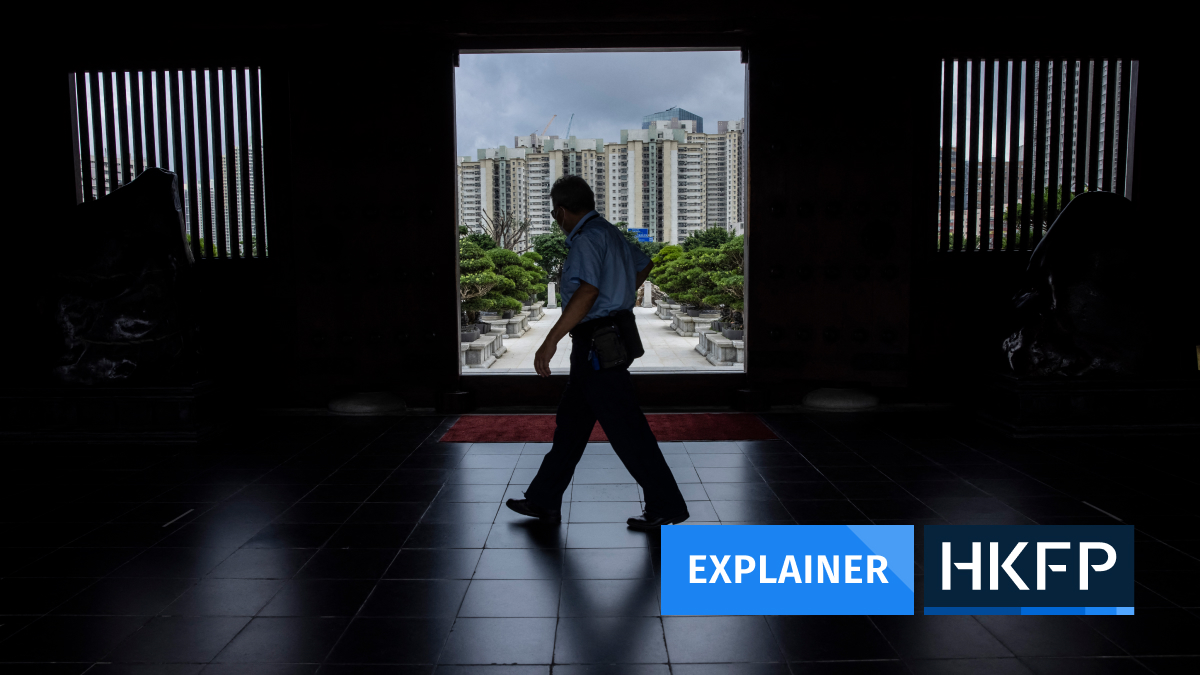Some stand tall whilst others are seated, one is on horseback as others wave or salute. In all, more than 200 unwanted statues sit in a nondescript park outside Taoyuan City in Taiwan – ranging from life-size to 15-feet tall, in red, brown, blue and white.

All of them pay homage to one man: the late dictator, Chiang Kai-shek – a hero, a villain or a mixture of both, depending on the lived experience of who you ask.
Taiwan has long been divided over how – if at all – to commemorate the martial law-era leader, and Cihu Memorial Sculpture Park is where many tributes to the generalissimo have ended up after being moved from other locations.

See also: Decades after the White Terror, Taiwan struggles to come to terms with painful past
Chiang helped defeat the invading Japanese in World War II, fought Mao Zedong’s communists, and built modern Taiwan – but he also ruled the island with an iron fist for decades.

During a 1947 crackdown, at least 18,000 people were killed on his watch, whilst at least 3,000 to 4,000 were executed in the “White Terror” years that lasted until 1987. Around 140,000 were arrested, imprisoned or tortured for their real, or perceived, opposition to the Kuomintang’s (KMT) brutal rule, government records have shown.
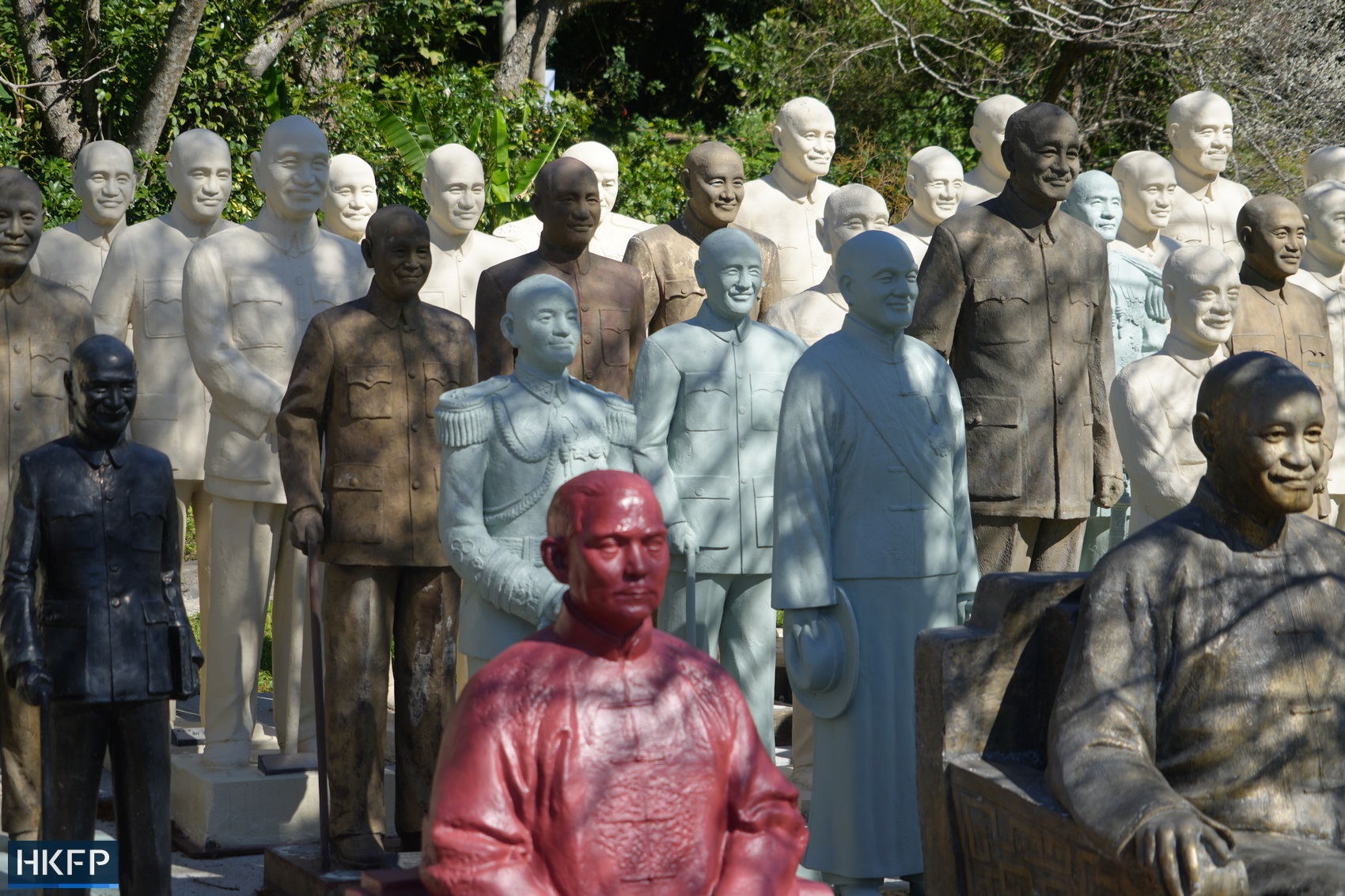
As the island grapples with its past and seeks to shape a new Taiwanese identity, statues and portraits have been vandalised, relocated or removed.

According to the Taipei Times last year, there were about 966 statues of Chiang Kai-shek remaining in public places when the independent Transitional Justice Commission was formed in 2018. The commission was tasked by President Tsai Ing-wen with investigating the martial law period, exonerating those convicted for political reasons, declassifying documents and removing symbols of authoritarianism.
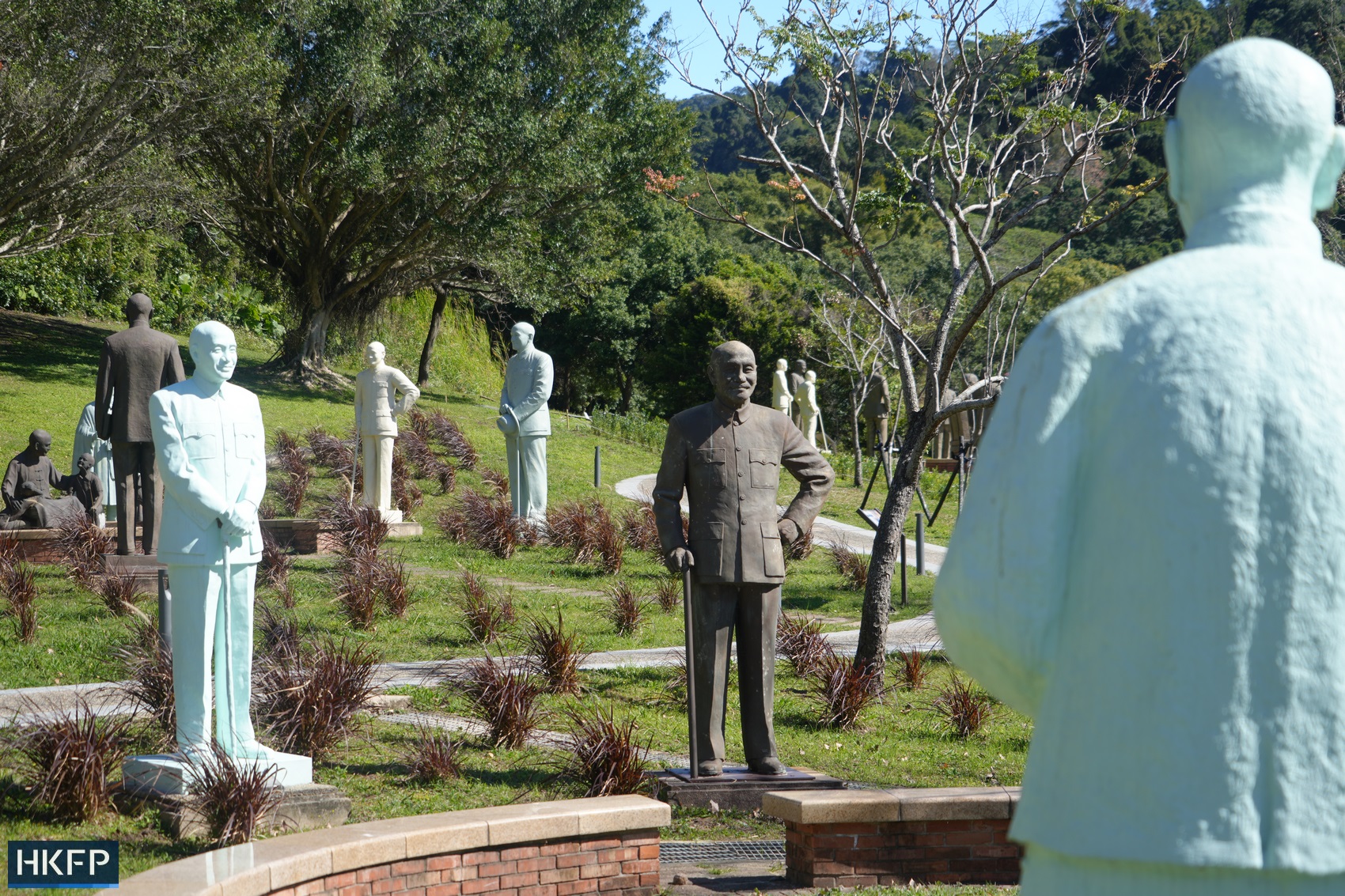
Hundreds of monuments and statues were removed, and sites dedicated to Chiang were renamed across the now-democratic island.

In 2021, the commission reported that it knew of 537 authoritarian symbols which still remained, after 403 had been removed. The truth commission was dissolved in 2022, and its website remains blocked in Hong Kong.

The most controversial of the remaining tributes to the ex-leader is Chiang Kai-shek Memorial Hall in Taipei. Last October, protesters called for its demolition, holding a banner reading: “Taiwan does not need a Dictator Memorial Hall,” state-backed CNA reported.

Campaigners want the site transformed into a public venue for the arts and entertainment, and a cabinet-level task force has sought ways to repurpose the hall. However, members have complained there is little political will.

Authorities may be concerned about the opposition KMT and its supporters – many of whom continue to revere Chiang. Traditionally a party popular among older and indigenous voters, business leaders, and families who emigrated after 1949, the KMT made inroads in appealing to younger people in the run-up to January’s election.

Ultimately, the KMT lost out to the ruling Democratic Progressive Party, but – whether despised as brutal dictator, or hailed as a nation-builder – Taiwanese will continue to reckon with Chiang’s legacy.
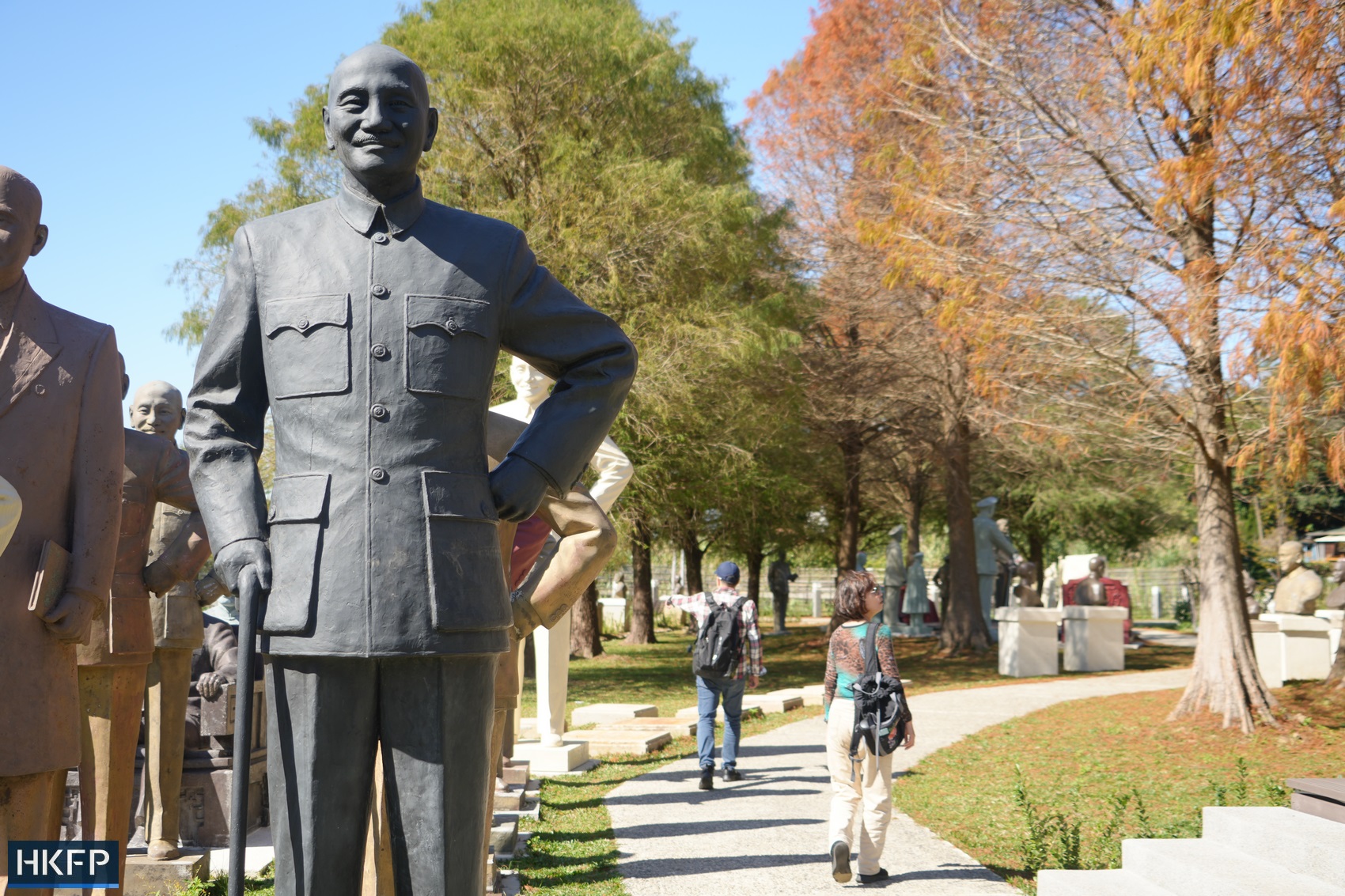




Support HKFP | Policies & Ethics | Error/typo? | Contact Us | Newsletter | Transparency & Annual Report | Apps
Help safeguard press freedom & keep HKFP free for all readers by supporting our team

Original reporting on HKFP is backed by our monthly contributors.
Almost 1,000 HKFP Patrons made this coverage possible. Each contributes an average of HK$200/month to support our award-winning original reporting, keeping the city’s only independent English-language outlet free-to-access for all. Three reasons to join us:
- 🔎 Transparent & efficient: As a non-profit, we are externally audited each year, publishing our income/outgoings annually, as the city’s most transparent news outlet.
- 🔒 Accurate & accountable: Our reporting is governed by a strict Ethics Code. We are 100% independent, and not answerable to any tycoon, mainland owners or shareholders. Check out our latest Annual Report, and help support press freedom.
- 💰 It’s fast, secure & easy: We accept most payment methods – cancel anytime, and receive a free tote bag and pen if you contribute HK$150/month or more.
MORE Original Reporting
HKFP has an impartial stance, transparent funding, and balanced coverage guided by an Ethics Code and Corrections Policy.
Support press freedom & help us surpass 1,000 monthly Patrons: 100% independent, governed by an ethics code & not-for-profit.




